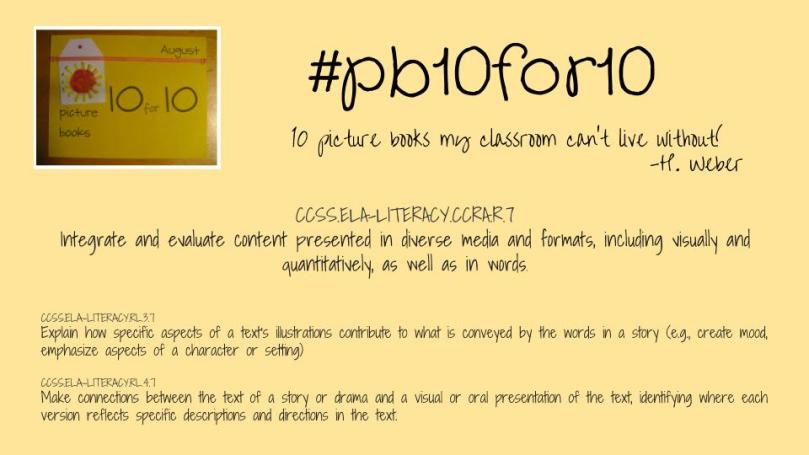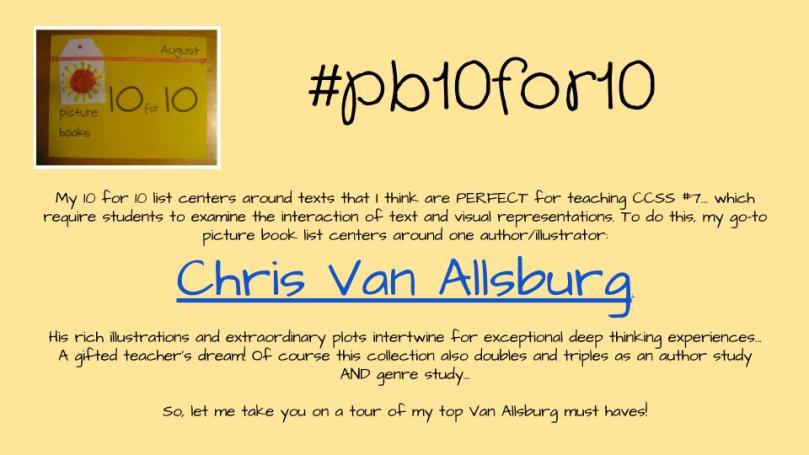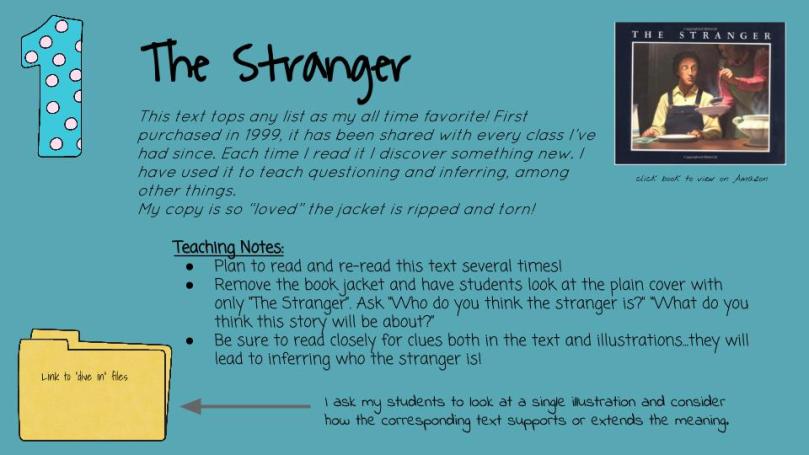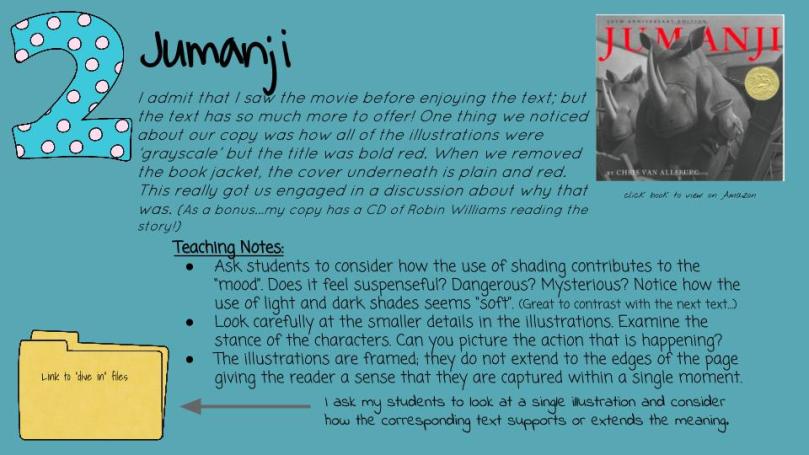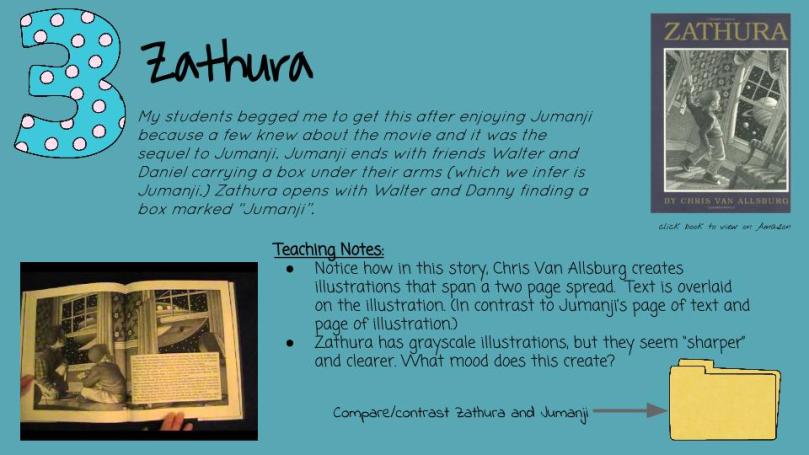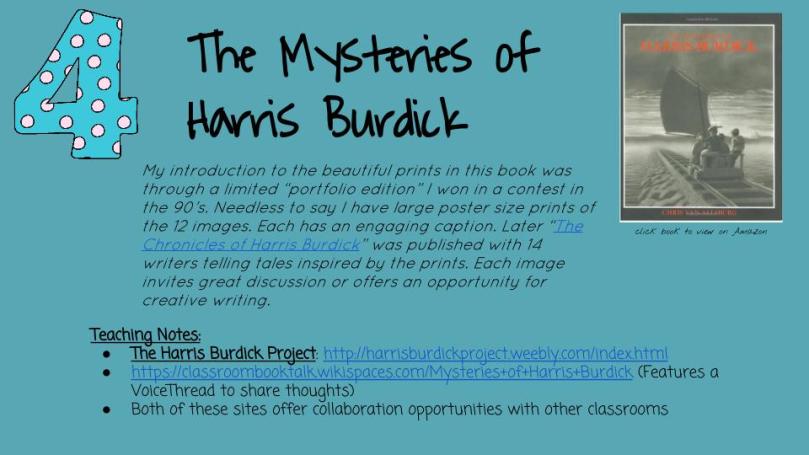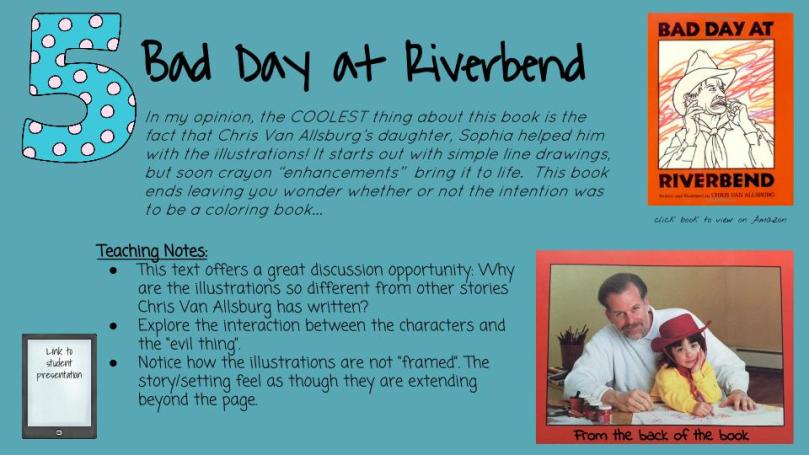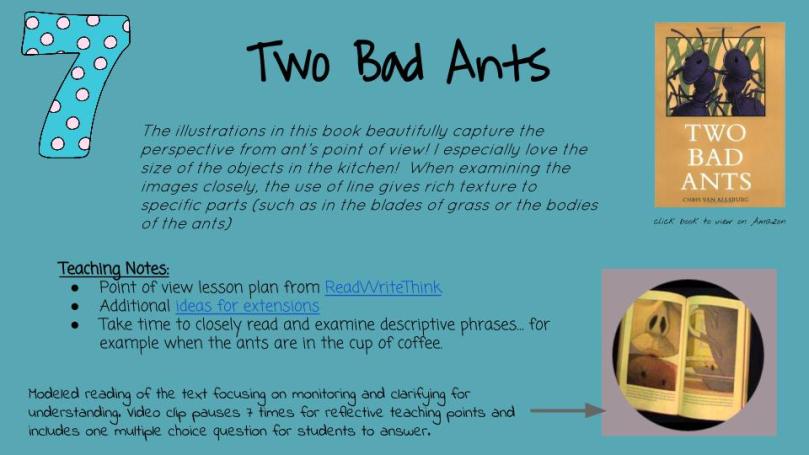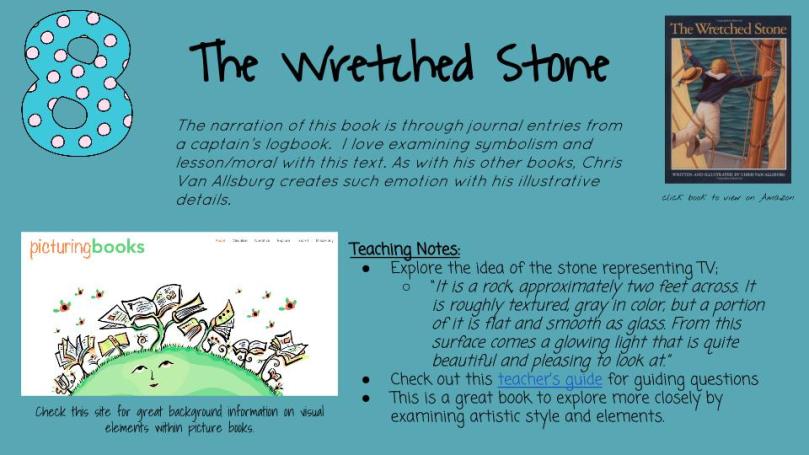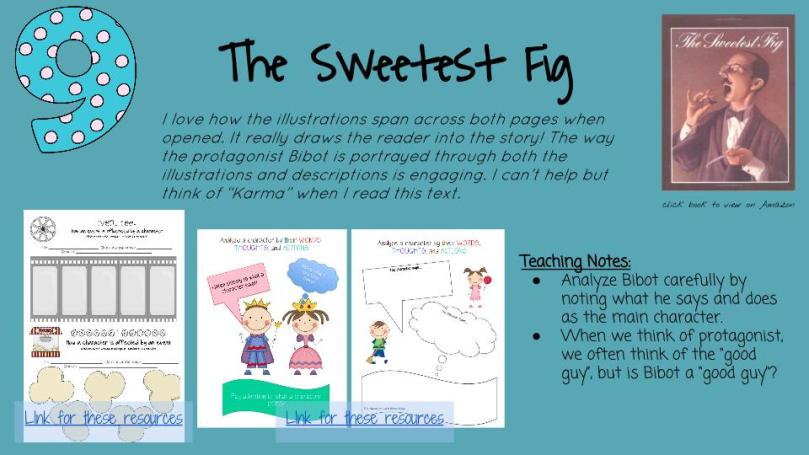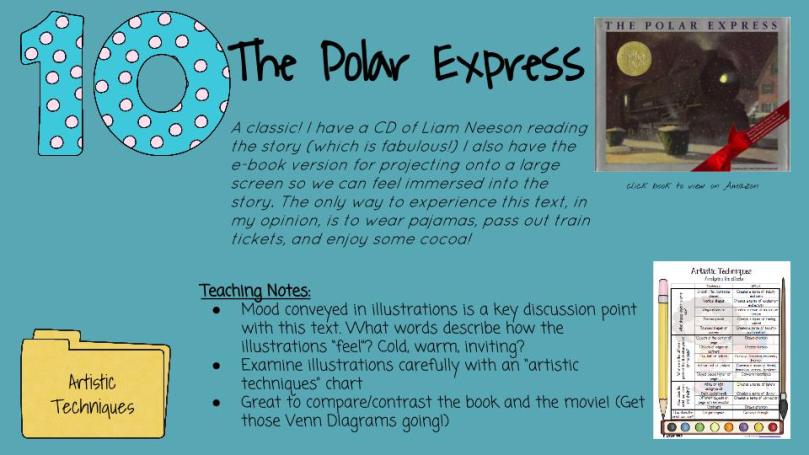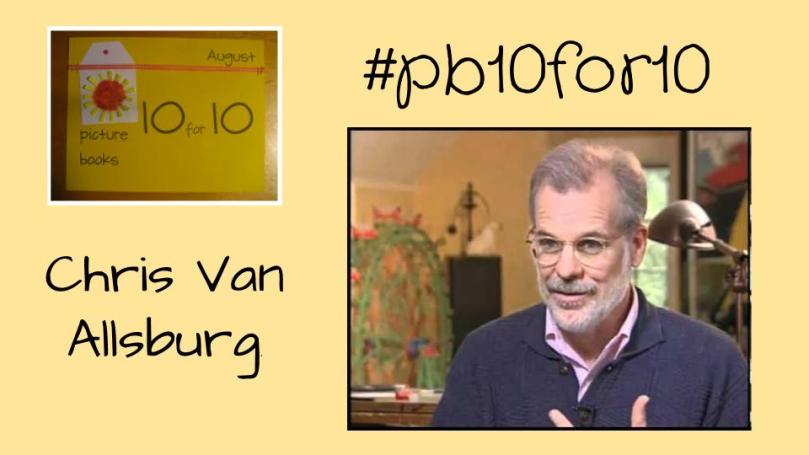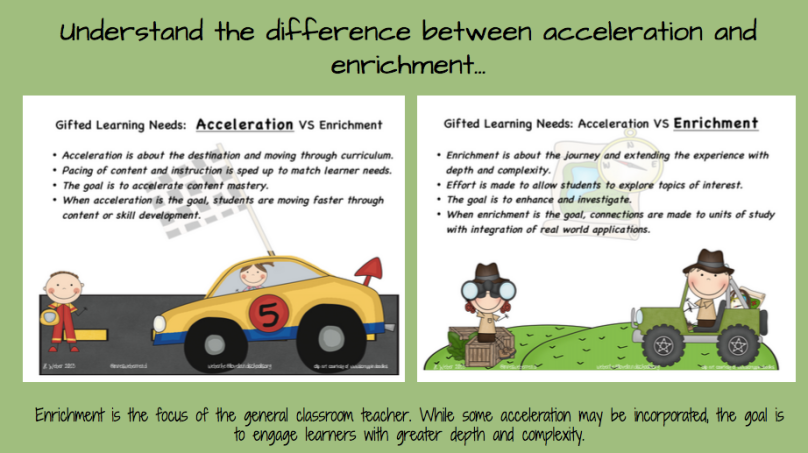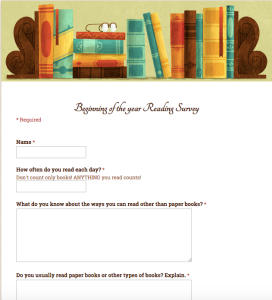
This summer’s #cyberPD group book study of Digital Reading left me with some amazing ideas, thoughts, challenges, and a new PLN. Students started last week, but as a gifted intervention specialist, I have not yet had the pleasure of working face to face with my kids yet. Still I engaged my students with a digital beginning of the year survey via Google forms.
This survey was inspired (and mostly borrowed from) the book. My goal in this was to gain some background info about my student’s thinking, make families a bit more aware of digital reading possibilities, and use the responses to plan my instruction. So far I have been tickled by what 8-9 year olds think!
One of my questions: “What do you think is challenging about online reading? (Or would be challenging?)” had the following responses: (copied and pasted so that the “charm” is not lost in translation…)
- “Nothing, i am use to reading online”
- “I do not find it challenging.”
- “big words.”
- “I like reading on the kindle.”
- “I think it is harder to keep focus.”
- “Instead of turning pages you have to move the mouse to the side”
- “Too many clicks to get to the right page”
- “I have never thout about that. I think it would be hard to across to the right page in a large online book.”
- “I think online reading is tough because the words are so tiny.”
- “The pages are long.”
From these responses, I can already tell that simple navigation techniques are not yet understood (not that I would expect them to be for young learners!) After reading these, I am going back and re-reading the part in the book where being intentional about digital reading strategies is important.

